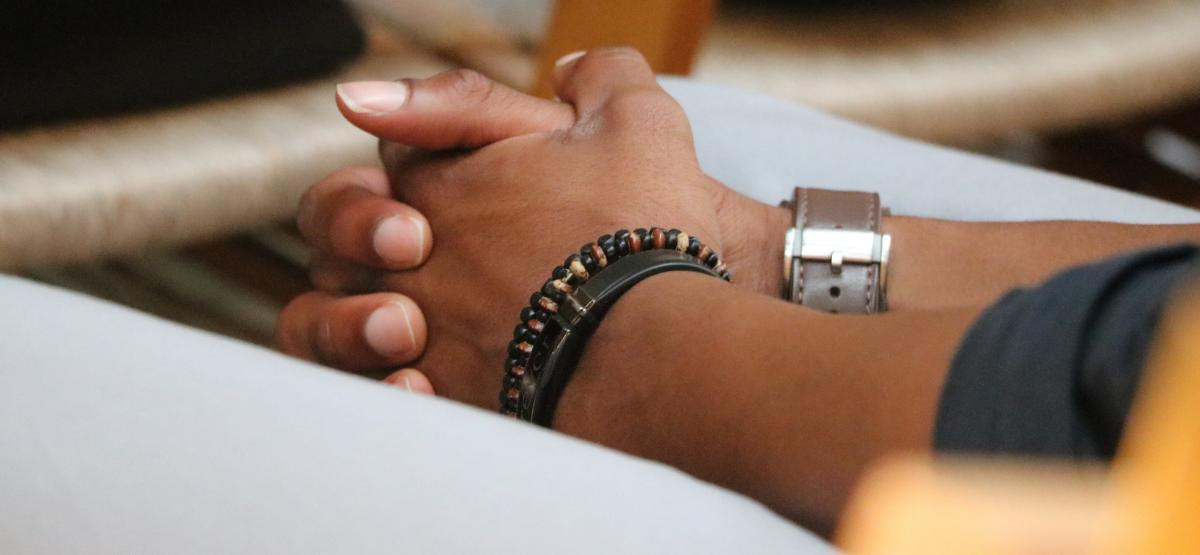“With much prayer,” quickly answers Rev. Stacey L. Smith, pastor and presiding elder at St James African Methodist Episcopal Church in St Paul. “Everything is so raw.” The city was on edge before, during and after the trial of former Minneapolis police officer Derek Chauvin, who was found guilty of murdering George Floyd. Many people across the world were shocked and angered after seeing a video of the brutal killing, and many waited anxiously for the verdict announced on 20 April. The murder of George Floyd is a tragic outcome of what people in Minnesota and the rest of the USA are coming to terms with: a 400-year-old history of slavery and white supremacy that underscores not only police brutality but everyday life in the workplace, on the streets—and even in the churches. As a group of religious leaders quietly comes together in Minnesota, they are expressing pain, anger, and sadness as they create the materials that will be used in the Week of Prayer for Christian Unity in 2023. The Week of Prayer for Christian Unity has been jointly organized by the World Council of Churches and the Pontifical Council for Promoting Christian Unity of the Roman Catholic Church since 1968. Each year, ecumenical partners in a particular region are invited to produce a liturgical text. As they talk about dismantling and confronting the power and principality of white supremacy, the group has been able to also express what is happening in their communities and in their churches, said Smith. “We just help one another,” she said. “We give room to one another.” Most in the group have known each other before they began working on the Week of Prayer materials, said Jim Bear Jacobs, program director of racial justice for the Minnesota Council of Churches and a member of the Mohican Nation. “Things like agenda and business take a back seat and we are here as a response to each other,” he said. Members of the group who have been tirelessly providing pastoral care for their church members also give—and receive—much-needed pastoral care from each other. “This is an incredible space where the sacred stories that everybody shares allow us to see the sacred in each other,” said Prof. Dr Cynthia Bailey Manns, adult learning director at St Joan of Arc Church and coordinator of the Spiritual Direction Certificate Program at St Catherine University in St Paul. As they talk through ideas, they get to know each other even better, agreed Rev. Dr DeWayne L. Davis, lead minister at Plymouth Congregational Church in South Minneapolis. “This doesn’t feel like a chore to me,” he said, “because so many people fill the space with good ideas. “In this group, we are able to share our concerns and our urgencies,” said Davis. “We’ve got to say some hard things even if we don't put it on paper.” As verdicts are handed down, but new violence against Black lives continues in community after community, is there even time to reflect? “The evolution of what I have written and what I will write is evident now and after the George Floyd verdict,” said Manns. “It’s hard to write something for two years in the future and feel this sense of immediacy and urgency,” said Jacobs, “but the situation which led to this whole year has been perpetuated in large part by how white supremacy has gotten its talons into the American church, particularly the white church. “We have to be the prophetic voice for our time, now,” he added. “I hope that we can.” The group shares a commitment to racial justice and social justice that is underscored by love for one another. “I’m not writing for 2023—I’m writing for today,” said Jacobs. “We write about these injustices in 2021 knowing they are going to be an issue in 2023.” The group feels certain that the world will need their message in 2023—and hopes the world is ready to hear. “What we are doing and feeling today will be needed when it arrives on the scene in 2023,” said Smith. “I have to believe God is really directing this. “We are the vessels,” Smith added. “What a privilege it is to be able to do this—to give people a sense of seeing God in action through all the muck and mire.” More information on the Week of Prayer for Christian Unity WCC member churches in the USA | 



No comments:
Post a Comment